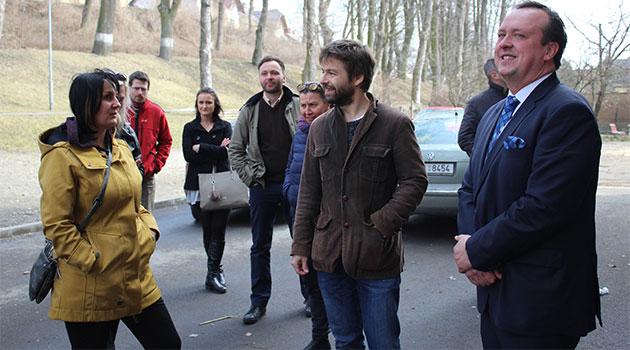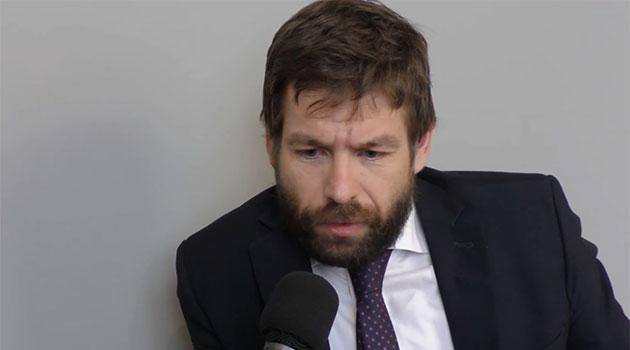Czech Justice Minister visits Moravian-Silesian Region's excluded localities, housing is the most essential issue

Life in excluded localities, trafficking in “social housing”, unemployment, indebtedness, educational problems, and crime. All of these subjects were encountered by Justice and Human Rights Minister Robert Pelikán and Deputy Justice and Human Rights Minister Martina Štěpánková, who runs the Human Rights Section, during their third trip together with the Czech Government Agency for Social Inclusion.
The minister and his entourage headed directly to the excluded localities and saw the consequences of the work being done by community centers, but the most essential difficulties proved to be around the housing issue. “Problems with housing have been mentioned everywhere we have gone so far. In the cities and in municipalities there are private accommodation facilities running where people pay enormously high amounts for rent. The housing itself, however, frequently does not even meet basic standards, but at the same time the local authorities do not have the powers to audit such facilities. Life in such residential hotels of course brings the tenants more and more problems,” said the Justice Minister during his tour of the town of Vítkov.
The same situation is being addressed in nearby Budišov nad Budišovkou and in Čermná ve Slezsku. The Deputy Minister continued the minister’s message: “Housing is the foundation. If a family has a decent, stable home situation, its members can then concentrate on other problems such as after-school activities for their children, school itself, etc.”
“All of social inclusion should look like a staircase where those who are interested in ascending are aided with doing so. In our system there are steps missing sometimes. In Brno they are managing to slowly improve the situation thanks to the Housing First and Rapid Re-housing projects with which we became acquainted during our last field trip,” the Justice Minister said before leaving Prague.
At the Tunnel center in Čermná ve Slezsku, staff support financial literacy, leading people to independence and to solving their problems instead of letting them get out of hand. Many locals are grappling with collections and debt.
Thanks to a ROMACT project in Budišov nad Budišovkou the common areas of municipally-owned housing have managed to be repaired and the vice-mayor says it is clear that residents appreciate their own work because the buildings have been maintained for two years now. Centers for children and youth have also achieved very nice results.
Such centers attempt to get children to attend school regularly to learn responsibility and to take part in organized after-school activities instead of spending time on the street. A drop-in center for youth in Vítkov dedicates itself to children and youth from six to 26.
Last Thursday the delegation heading to several excluded localities in Ostrava. They looked at the work of many support organizations dedicated to children and youth.
These included, for example, the White Rhinoceros organization (Bílý nosorožec), which leads projects supporting preschool preparation and education in the schools and runs the Bedřiška Community Center as part of crime prevention. The minister also visited the Coexistence Village (Vesničku soužití), a successful project bringing together the non-Romani and Romani populations.
Families with young children, socially vulnerable people, unemployed persons and over-indebted persons are accommodated in the village’s 30 single-family homes. Residents are strongly motivated to maintain their housing and take advantage of social service support, and just eight families have moved away during the 16 years the village has been functioning.
